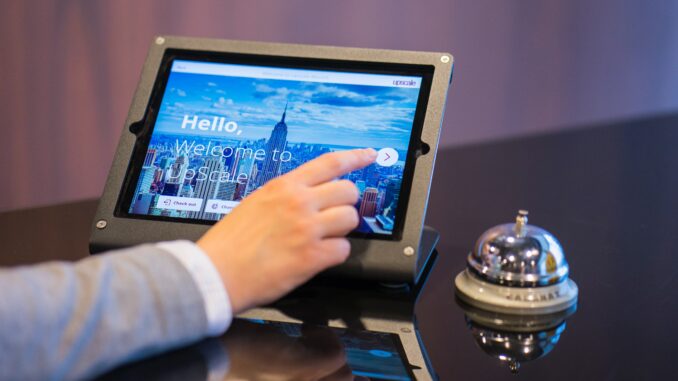
Introduction
In today’s digital age, the hospitality industry has embraced the power of ecommerce to enhance their online presence and boost revenue. With the increasing popularity of online travel booking platforms, it has become imperative for hotels to develop effective strategies to tap into the potential of hotel ecommerce. This comprehensive guide will delve into the world of hotel ecommerce, providing you with valuable insights, tips, and best practices to optimize your online revenue streams. So, whether you’re a small boutique hotel or a large chain, this guide will equip you with the knowledge to navigate the dynamic landscape of hotel ecommerce.
Hotel Ecommerce: What You Need to Know
In this section, we will dive deep into the concept of hotel ecommerce, exploring its significance and how it differs from traditional hospitality marketing strategies.
The Definition of Hotel Ecommerce
Hotel ecommerce refers to the process of conducting online transactions and marketing activities in the hospitality industry. It encompasses a wide range of activities, including online booking, revenue management, digital marketing, and customer relationship management. Through hotel ecommerce, hotels can connect with potential guests, showcase their offerings, and ultimately convert online visitors into paying customers.
The Importance of Hotel Ecommerce
In today’s highly competitive landscape, having a robust hotel ecommerce strategy is vital for maximizing revenue and staying ahead of the competition. Here are some key reasons why hotel ecommerce is crucial:
- Increased Online Visibility: In an era where consumers rely heavily on online platforms for travel planning, a strong online presence is essential. Implementing effective hotel ecommerce strategies ensures that your hotel is visible to a wider audience, increasing the chances of attracting potential guests.
- Direct Revenue Generation: Hotel ecommerce enables hotels to bypass third-party distribution channels, such as online travel agencies (OTAs), and drive direct bookings through their own website. This direct revenue generation helps hotels retain a larger portion of the booking value and establish a direct relationship with guests.
- Enhanced Customer Experience: Hotel ecommerce allows hotels to personalize the booking experience, tailoring it to each guest’s preferences. From personalized recommendations to targeted marketing campaigns, ecommerce enables hotels to deliver a more engaging and memorable experience to their guests.
Key Components of Hotel Ecommerce
To succeed in hotel ecommerce, it is essential to understand the key components that contribute to its effectiveness. Let’s explore these components in detail:
1. Online Booking Systems
Online booking systems are at the heart of hotel ecommerce. These systems enable guests to make reservations directly through the hotel’s website or other online platforms. By providing a seamless and user-friendly booking experience, hotels can drive direct bookings and increase online revenue.
2. Revenue Management
Effective revenue management is a critical aspect of hotel ecommerce. It involves analyzing market trends, demand patterns, and competitor rates to optimize pricing strategies. By leveraging revenue management techniques, hotels can maximize their revenue potential and maintain a competitive edge in the market.
3. Digital Marketing
Digital marketing plays a crucial role in promoting a hotel’s online presence and attracting potential guests. From search engine optimization (SEO) to social media marketing and content creation, a well-rounded digital marketing strategy can significantly impact a hotel’s visibility and online revenue.
4. Customer Relationship Management (CRM)
Building strong customer relationships is essential for long-term success in hotel ecommerce. A robust CRM system enables hotels to capture guest data, analyze preferences, and tailor personalized marketing campaigns. By nurturing these relationships, hotels can foster loyalty and encourage repeat bookings.
Hotel Ecommerce Best Practices
In this section, we will explore some proven best practices that can help hotels optimize their ecommerce efforts and maximize online revenue.
1. Develop a Mobile-First Website
In the age of smartphones, having a mobile-responsive website is crucial. Mobile users constitute a significant portion of online travel bookers, and a user-friendly mobile website ensures a seamless booking experience, leading to increased conversions.
2. Optimize Website for Search Engines
Implementing effective SEO strategies is key to improving organic visibility and driving organic traffic to your website. Conduct keyword research, optimize your website’s meta tags, create compelling content, and build authoritative backlinks to improve your search engine rankings.
3. Leverage Social Media Marketing
Engage with your audience through social media platforms, such as Facebook, Instagram, and Twitter. Share captivating visuals, respond to guest queries, and run targeted ad campaigns to raise brand awareness and drive traffic to your website.
4. Offer Exclusive Direct Booking Benefits
Incentivize guests to book directly through your website by offering exclusive benefits, such as discounted rates, complimentary upgrades, or additional amenities. Highlight these perks prominently on your website to encourage direct bookings.
5. Implement Dynamic Pricing
Leverage revenue management techniques to implement dynamic pricing strategies. By adjusting prices based on factors like demand, seasonality, and competitor rates, hotels can optimize revenue and maximize profitability.
6. Enhance the Guest Experience
Invest in enhancing the overall guest experience to drive positive reviews and foster customer loyalty. Provide personalized recommendations, offer convenient online check-in/out options, and leverage technology to streamline the guest journey.
FAQs about Hotel Ecommerce
In this section, we’ll address some frequently asked questions about hotel ecommerce:
Q1: How can hotel ecommerce improve my revenue?
Hotel ecommerce can boost your revenue by increasing direct bookings, reducing reliance on third-party channels, and providing opportunities for personalized marketing campaigns.
Q2: What are the benefits of a mobile-responsive website for hotel ecommerce?
A mobile-responsive website ensures that potential guests can easily navigate and book on their smartphones, leading to higher conversion rates and improved user experience.
Q3: How can social media marketing benefit my hotel’s ecommerce efforts?
Social media marketing allows you to engage with your audience, raise brand awareness, and drive traffic to your website. It provides an effective platform for showcasing your hotel’s offerings and attracting potential guests.
Q4: What is dynamic pricing, and how can it help my hotel’s revenue management?
Dynamic pricing involves adjusting room rates based on various factors like demand, seasonality, and competitor rates. By implementing dynamic pricing strategies, hotels can optimize revenue and maximize profitability.
Q5: How important is personalized guest experience in hotel ecommerce?
Personalized guest experiences contribute to guest satisfaction, positive reviews, and repeat bookings. By tailoring the guest experience to individual preferences, hotels can enhance customer loyalty and drive revenue growth.
Q6: What role does online reputation management play in hotel ecommerce?
Online reputation management involves monitoring and responding to guest reviews and feedback. Maintaining a positive online reputation is crucial for attracting potential guests and building trust in your brand.
Conclusion
In today’s digital landscape, hotel ecommerce plays a vital role in driving revenue and establishing a competitive edge in the hospitality industry. By leveraging online booking systems, revenue management techniques, digital marketing strategies, and personalized guest experiences, hotels can enhance their online presence and maximize their revenue potential. Remember, a comprehensive hotel ecommerce strategy should focus on providing a seamless booking experience, optimizing visibility through digital marketing, and nurturing strong customer relationships. By implementing the best practices outlined in this guide, you’ll be well-equipped to navigate the evolving world of hotel ecommerce and achieve long-term success.

Leave a Reply